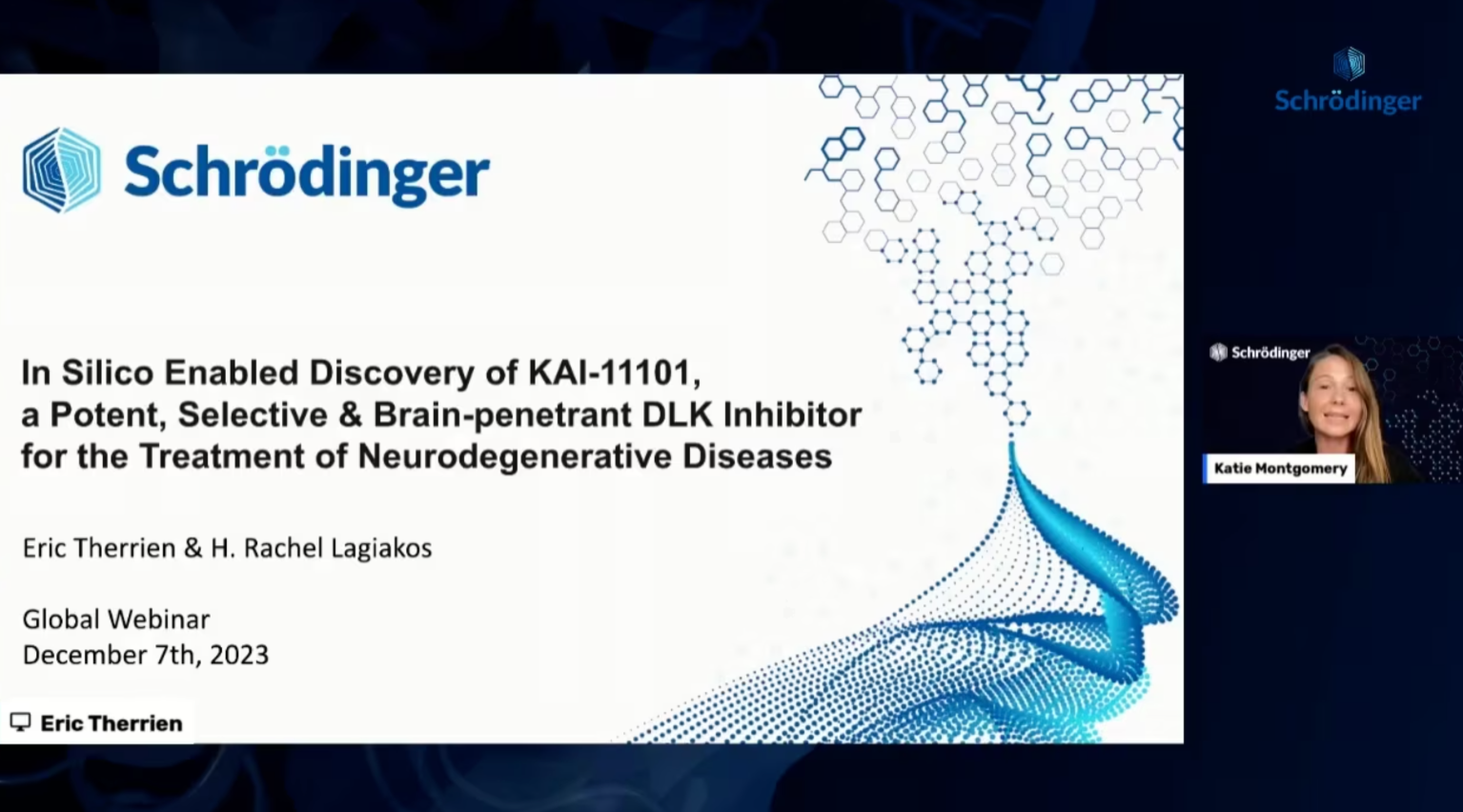
In silico enabled discovery of KAI-11101, a potent, selective, and brain-penetrant DLK inhibitor for the treatment of neurodegenerative diseases
Speakers
Eric Therrien, PhD
Director, Schrödinger Therapeutics Group
H. Rachel Lagiakos, PhD
Senior Principal Scientist, Schrödinger Therapeutics Group
Abstract
Dual leucine zipper kinase (DLK), also known as MAP3K12, is a member of the mixed lineage kinase (MLK) family that is expressed primarily in neuronal cells. Recent work has demonstrated that genetic deletion or pharmacological inhibition of DLK results in attenuation of synapse loss, neuronal degeneration, and functional decline in models of both Alzheimer’s Disease and Amyotrophic Lateral Sclerosis (ALS), making DLK an attractive therapeutic target for the treatment of neurodegenerative diseases.
In this webinar, we will detail the program led by Schrödinger Therapeutics Group to discover a novel, potent, selective, and brain-penetrant DLK inhibitor (KAI-11101). The case study demonstrates various innovations in modeling to overcome common drug discovery challenges encountered over the course of the program:
- Large-scale, free energy perturbations (FEP+) was used to predict compound binding affinity to hDLK in silico and to prioritize design ideas for synthesis, facilitating rapid program progression
- Predictive ADMET modeling, including a novel energy of solvation method for predicting brain Kp,uu (E-sol), helped to mitigate multiple med chem challenges such as brain penetration, hERG inhibition, and CYP3A4 TDI
- In addition to on-target potency, FEP+ technology was also applied to improve off-target selectivity, allowing the team to establish an exquisite selectivity profile, imperative for a chronically dosed CNS drug profile
This effort culminated in the identification of DLK inhibitor (KAI-11101) which showed neuroprotective properties in an ex vivo axon fragmentation assay and demonstrated dose-dependent p-c-Jun reduction in in vivo mouse cerebellum PD model. With favorable preclinical PK, in vitro safety and predicted human dose, KAI-11101 is a promising preclinical candidate.